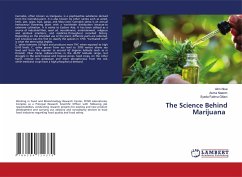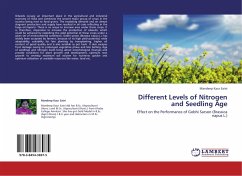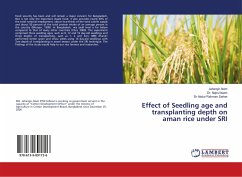
Principles of Seedling & Inflorescence of Marijuana
Versandkostenfrei!
Versandfertig in 6-10 Tagen
27,99 €
inkl. MwSt.

PAYBACK Punkte
14 °P sammeln!
Before being introduced into Africa, Europe, and eventually the Americas, the cannabis or hemp plant evolved in Central Asia. C Before being introduced into Africa, Europe, and eventually the Americas, the cannabis or hemp plant evolved in Central Asia. Clothing, paper, sails, and rope were all made from hemp fiber, and the seeds were eaten. Hemp was commonly farmed across colonial America and at Spanish missions in the Southwest because it is a fast growing, easy-to-cultivate plant with various applications. Farmers were compelled to produce hemp in the early 1600s in the Virginia, Massachuse...
Before being introduced into Africa, Europe, and eventually the Americas, the cannabis or hemp plant evolved in Central Asia. C Before being introduced into Africa, Europe, and eventually the Americas, the cannabis or hemp plant evolved in Central Asia. Clothing, paper, sails, and rope were all made from hemp fiber, and the seeds were eaten. Hemp was commonly farmed across colonial America and at Spanish missions in the Southwest because it is a fast growing, easy-to-cultivate plant with various applications. Farmers were compelled to produce hemp in the early 1600s in the Virginia, Massachusetts, and Connecticut colonies. The ingredient responsible for marijuana's mind-altering effects, tetrahydrocannabinol (THC), was found in extremely low amounts in these early hemp plants. Clothing, paper, sails, and rope were all made from hemp fiber, and the seeds were eaten. Cannabis extracts were being marketed in pharmacies and doctors' offices across Europe and the United States by the late 1800s to treat stomach disorders and other diseases. THC was eventually revealed to be the source of marijuana's therapeutic benefits by scientists.












